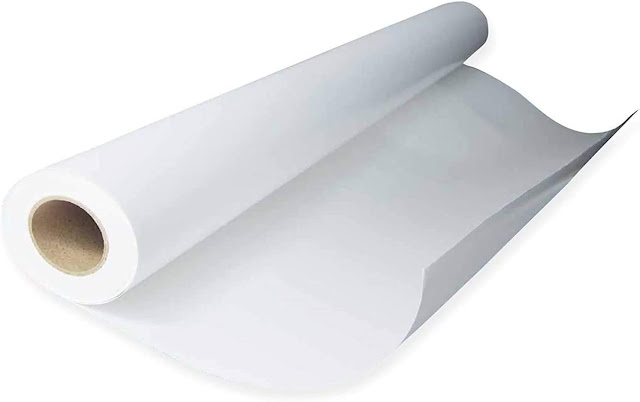Dye Sublimation Paper Market Is Estimated To Witness High Growth Owing To Increasing Demand in Textile Printing
 |
| Dye Sublimation Paper Market |
The
global Dye Sublimation Paper Market is estimated to be valued at US$ 560.1
million in 2021 and is expected to exhibit a CAGR of 5.3% over the forecast
period 2022-2030, as highlighted in a new report published by Coherent Market
Insights.
Market Overview:
Dye sublimation paper is a specially coated paper that is used in dye
sublimation printing, which is a popular method for transferring high-quality
and vibrant images onto various substrates such as fabrics, ceramics, metals,
and plastics. This type of paper offers several advantages including excellent
color reproduction, sharp details, durable prints, and fast drying time.
The need for Dye
Sublimation Paper Market is associated with the growing demand for
textile printing. The textile industry is witnessing significant growth
worldwide, driven by factors such as increasing population, rising disposable
income, and evolving fashion trends. Dye sublimation printing is extensively
used in the textile industry to create customized designs, patterns, and
graphics on fabrics. Therefore, the demand for dye sublimation paper is
expected to witness substantial growth in the coming years.
Market Key Trends:
One key trend observed in the dye sublimation paper market is the increasing
adoption of eco-friendly products. The textile industry is under increasing
pressure to adopt sustainable practices and reduce its environmental impact. As
a result, there is a growing demand for eco-friendly dye sublimation papers
that are free from harmful chemicals and are recyclable. Manufacturers are
investing in research and development to develop sustainable alternatives to
conventional dye sublimation papers. For instance, Ahlstrom-Munksjö, one of the
key players in the market, offers a range of eco-friendly dye sublimation
papers that are manufactured using renewable raw materials and are compostable.
PEST Analysis:
Political: The political factors influencing the dye sublimation paper market
include government regulations and policies related to the textile industry,
trade agreements affecting import and export of textiles, and political
stability in major manufacturing regions.
Economic: Economic factors such as GDP growth, disposable income, inflation
rates, and consumer spending patterns impact the demand for textiles and,
thereby, the demand for dye sublimation paper.
Social: Social factors like changing fashion trends, growing preference for
customized products, and increasing awareness about sustainable practices
influence the demand for textile printing and, consequently, dye sublimation
paper.
Technological: Technological advancements in the field of dye sublimation
printing, such as improved ink formulations and digital printing technologies,
are driving the adoption of dye sublimation papers.
Key Takeaways:
- The global dye sublimation paper market is expected to witness high growth,
exhibiting a CAGR of 5.3% over the forecast period, due to increasing demand in
textile printing.
- Asia Pacific is the fastest-growing and dominating region in the dye
sublimation paper market. This can be attributed to the presence of a large textile
industry in countries like China and India, coupled with the growing popularity
of digital textile printing.
- Key players operating in the global dye sublimation paper market include
Guangdong Guanhao High-Tech, Hansol Paper Co., Ltd., Sappi Group, Neenah
Coldenhove, Ahlstrom-Munksjö, The Felix Schoeller Group, Beaver Paper &
Graphic Media Inc., Jiangyin Allnice Digital Technology, Seiko Epson
Corporation, and B.N Papeis. These players focus on product innovation,
strategic partnerships, and expansion to strengthen their market presence.



Comments
Post a Comment